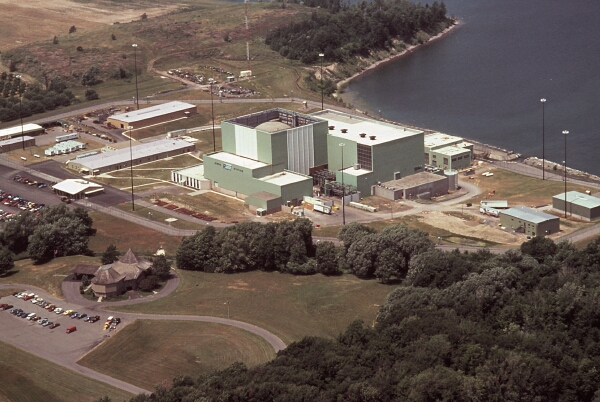
Yesterday, the New York Public Service Commission voted unanimously to require the upstate utility Rochester Gas and Electric (RGE) to enter into negotiations with Exelon to keep the company’s uneconomic Ginna reactor from shutting down this year.
Exelon subsidiary Constellation Energy, which runs the Ginna reactor, says the reactor has lost $100 million over the past three years and that while it is currently selling power on the open market, it is losing money there.
Constellation previously had a ten-year agreement with RGE for the utility to buy Ginna’s power, but that expired on June 30.
The PSC said it is concerned about electricity reliability in the Rochester area, and that a shutdown of Ginna in the near future might threaten that reliability. A study by New York’s grid operator said the reactor’s power will be needed through 2018. Of course, as we noted on July 14 when Exelon first proposed a new power purchase contract, counting on a 44-year old reactor to provide reliable electricity is not exactly a safe bet.
In making its decision, the PSC ignored the dozen or so groups that had petitioned to intervene in the process and urged the dismissal of Exelon’s request.
The big losers here are RGE customers. If Ginna has been losing tens of millions per year under the previous contract as its owner claims, then to make Ginna profitable–which is Exelon’s goal–will require substantial rate increases.
Still, Exelon didn’t get all it might want either. The PSC still has to approve any final deal between RGE and Exelon, and a deal that would raise rates too much might be frowned upon. And it’s unclear at this point whether rate increases sufficient to return Ginna to profitability would in fact be too high for PSC approval.
And Exelon isn’t going to get a long-term power purchase agreement–just one that will cover the current reliability issue–presumably until 2018. PSC Chair Audrey Zibelman said that it’s not about keeping Ginna operating for its own sake: “The issue for us is how do we have an orderly exit” when Ginna does shut down.
She also wouldn’t commit to approving any final deal, saying that while the negotiations between RGE and Exelon go on, that would give the PSC “ample time to take a look and see if there are viable alternatives in lieu of the power plant.”
In Illinois, where Exelon is running a half-dozen or so uneconomic reactors, Crain’s Chicago Business described the NY PSC’s action as a “precursor to the debate expected next year in Illinois.”
But the conditions are quite different in the two states: there are no purchase power agreements available in Illinois to bail out Exelon there, since Exelon is pretty much the only game in the state–and it won’t help for Exelon to make such an agreement with itself. Nor is reliability a big issue in Illinois–Exelon’s reactors just can’t compete with the huge amounts of wind power and natural gas available in the state. It’s not like there is a potential power shortage there.
A short-term bailout wouldn’t do much for Exelon in Illinois either–most of its reactors in the state are much younger than Ginna, which is near its retirement in any event. In the sense that people in Illinois will be asked to pay higher electricity rates to keep uneconomic reactors open, yes, that will certainly be part of Exelon’s game plan there. But Exelon’s arguments for those higher rates are much weaker in Illinois.
The big banks may have received consumer bailouts because they were famously “too big to fail.” But Exelon’s argument essentially boils down to the fact that its reactors are “too big to compete” with the smaller (as well as safer and cleaner), distributed generation provided by renewables. And that’s going to be a much tougher sell.
What Exelon has going for it in Illinois is that it is far more politically powerful there than in New York. And that means clean energy advocates in Illinois are going to need help from all of us in the coming months as Exelon’s strategy there becomes clearer.
Meanwhile, clean energy advocates in New York are examining the PSC’s action to determine whether there may be legal recourse available. Exelon won this round there, but the issue isn’t done in New York, or anywhere else.
Michael Mariotte
November 14, 2014
Permalink: https://www.nirs.org/2014/11/14/exelon-wins-a-round/
Your contributions make publication of GreenWorld possible. If you value GreenWorld, please make a tax-deductible donation here and ensure our continued publication. We gratefully appreciate every donation of any size.
Comments are welcome on all GreenWorld posts! Say your piece above. Start a discussion. Don’t be shy; this blog is for you.
If you’d like to receive GreenWorld via e-mail, send your name and e-mail address to nirs@nirs.org and we’ll send you an invitation. Note that the invitation will come from a GreenWorld@wordpress.com address and not a nirs.org address, so watch for it.
If you like GreenWorld, you can help us reach more people. Just use the icons below to “like” our posts and to share them on the various social networking sites you use. And if you don’t like GreenWorld, please let us know that too. Send an e-mail with your comments/complaints/compliments to nirs@nirs.org. Thank you!
GreenWorld is crossposted on tumblr at https://www.tumblr.com/blog/nirsnet




In truth, nuclear power and nuclear weapons are dead (i.e., unable to survive) though their
PR departments are fired up 24/7/365. So much wasted money that could go to renewables.
Some of us think survival is a good idea and actually a huge moneymaker, but just for other, more foresighted people.